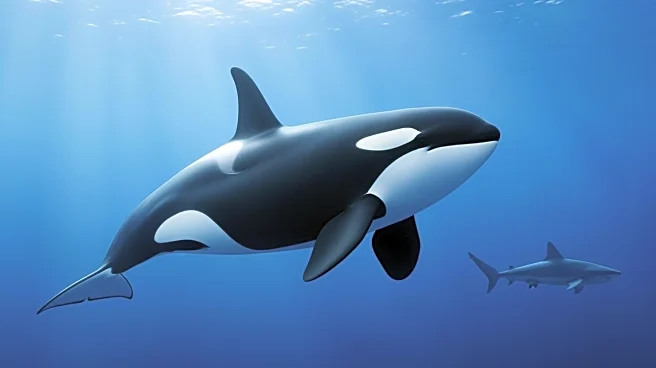What's Happening?
Researchers have captured footage of orcas hunting juvenile great white sharks in the Gulf of California, marking the first recorded instance of such behavior in Mexican waters and the second globally. The orcas employ a technique known as tonic immobility,
flipping the sharks belly up to paralyze them before extracting their nutrient-rich livers. This method minimizes handling and potential injury to the orcas. The study, published in Frontiers in Marine Science, highlights the orcas' advanced intelligence and social learning, as these hunting techniques are passed down through generations. The orcas belong to Moctezuma’s pod, known for preying on sharks and rays, and may be benefiting from warmer waters that have altered shark nursery distributions.
Why It's Important?
This discovery underscores the adaptability and intelligence of orcas, showcasing their ability to develop specialized hunting techniques. The behavior could have significant ecological implications, potentially affecting the population dynamics of great white sharks. Juvenile sharks, lacking developed anti-predator mechanisms, may become more vulnerable, impacting their survival rates. This could lead to shifts in the marine ecosystem, as great white sharks play a crucial role as apex predators. The findings also contribute to the understanding of predator-prey interactions and the impact of environmental changes on marine life.
What's Next?
Further research is needed to understand the long-term effects of this predation on great white shark populations and the broader marine ecosystem. Scientists may investigate whether similar behaviors are occurring in other regions and how climate change might be influencing these interactions. Conservationists and marine biologists will likely monitor the situation to assess the need for protective measures for vulnerable shark populations.
Beyond the Headlines
The study highlights the complex social structures and learning capabilities of orcas, which could inform broader discussions on marine conservation and the protection of intelligent marine species. The findings may also prompt a reevaluation of the ecological roles of orcas and their impact on marine biodiversity.

















